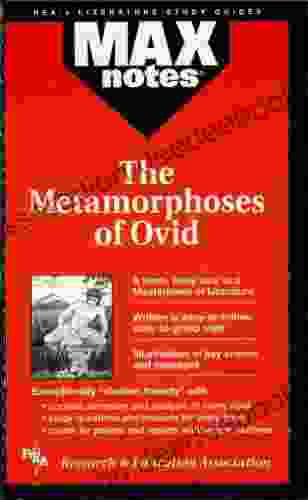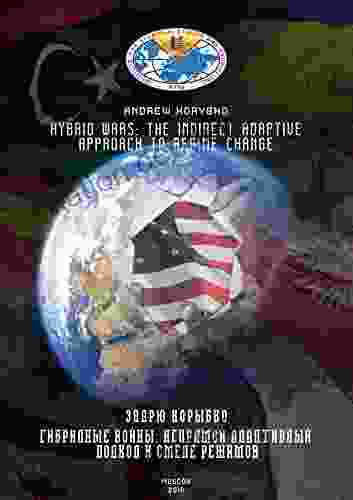The Indirect Adaptive Approach to Regime Change: A Comprehensive Guide

In the intricate realm of international relations, regime change has emerged as a contentious and multifaceted phenomenon. External actors often seek to influence or even alter the political systems of other nations, and the indirect adaptive approach has gained prominence as a preferred strategy. This approach aims to achieve regime change without resorting to direct military intervention, instead employing a combination of diplomatic, economic, and covert measures.
This comprehensive guide will delve into the intricate workings of the indirect adaptive approach, examining its strategies, controversies, and geopolitical implications. By exploring the nuances of this complex subject, we aim to provide a comprehensive understanding of how external actors navigate the delicate task of influencing internal political dynamics.
4.4 out of 5
| Language | : | English |
| File size | : | 4074 KB |
| Text-to-Speech | : | Enabled |
| Screen Reader | : | Supported |
| Enhanced typesetting | : | Enabled |
| Word Wise | : | Enabled |
| Print length | : | 157 pages |
| Lending | : | Enabled |
Strategies of the Indirect Adaptive Approach
The indirect adaptive approach encompasses a wide range of strategies, each tailored to specific circumstances and actors involved:
- Diplomatic Pressure: External actors may exert diplomatic pressure through negotiations, sanctions, or international organizations to push for political reforms or changes in government.
- Economic Coercion: Economic measures, such as trade embargoes, financial sanctions, or aid conditionality, can be used to pressure regimes to alter their policies or behavior.
- Covert Operations: Intelligence agencies or clandestine organizations may engage in covert activities, such as supporting opposition groups, spreading propaganda, or conducting sabotage, to weaken or undermine target regimes.
- Soft Power: External actors can leverage soft power, such as cultural exchange, education programs, and public diplomacy, to influence public opinion and promote desired values or narratives.
- International Law and Norms: By appealing to international law and norms, external actors can mobilize international support for their actions and pressure target regimes to comply with international standards.
Controversies and Ethical Considerations
The indirect adaptive approach has generated significant controversy and ethical concerns, particularly when employed without clear mandates or accountability:
- Sovereignty and Intervention: The use of the indirect adaptive approach can challenge the principle of state sovereignty, raising questions about the legitimacy of external intervention in internal affairs.
- Unintended Consequences: Covert operations and other indirect measures may have unintended consequences, such as destabilizing political systems or exacerbating existing conflicts.
- Democratic Legitimacy: Critics argue that regime change orchestrated by external actors may undermine democratic principles and lack the legitimacy of political transitions driven by internal forces.
- Responsibility and Accountability: External actors often face limited responsibility or accountability for the outcomes of their interventions, raising concerns about the potential for abuse or unintended harm.
Geopolitical Implications
The indirect adaptive approach has significant geopolitical implications, shaping global power dynamics and international relations:
- Power Projection: The ability to effectively employ the indirect adaptive approach can enhance a nation's power projection capabilities, allowing it to influence events beyond its borders.
- Global Stability: While the indirect adaptive approach may aim to promote stability in certain cases, it can also contribute to instability and conflict in others.
- International Order: The use of the indirect adaptive approach can challenge or reinforce existing international norms and institutions, shaping the global political landscape.
- Regional Dynamics: The indirect adaptive approach can have significant impacts on regional dynamics, altering power balances and influencing the trajectory of regional conflicts.
Case Studies
To illustrate the practical applications of the indirect adaptive approach, we present two case studies:
- Operation Condor: During the Cold War, the United States supported military dictatorships in Latin America through covert operations and economic aid, resulting in the overthrow of several leftist governments.
- The Arab Spring: The United States and other Western powers employed a combination of diplomatic pressure, economic sanctions, and covert support for opposition groups to encourage political transitions in the Middle East during the Arab Spring uprisings.
The indirect adaptive approach to regime change is a complex and multifaceted phenomenon that has played a significant role in international relations. While it offers a potential path to influence foreign governments and promote desired outcomes, it also raises important ethical and geopolitical concerns. Understanding the strategies, controversies, and implications of this approach is crucial for navigating the delicate balance between external intervention and the sovereignty of nations.
As global power dynamics continue to shift, the indirect adaptive approach will undoubtedly remain a topic of debate and scrutiny. By fostering a nuanced understanding of this complex subject, we can contribute to more informed and responsible engagement in international affairs.
4.4 out of 5
| Language | : | English |
| File size | : | 4074 KB |
| Text-to-Speech | : | Enabled |
| Screen Reader | : | Supported |
| Enhanced typesetting | : | Enabled |
| Word Wise | : | Enabled |
| Print length | : | 157 pages |
| Lending | : | Enabled |
Do you want to contribute by writing guest posts on this blog?
Please contact us and send us a resume of previous articles that you have written.
 Book
Book Page
Page Story
Story Reader
Reader Library
Library Magazine
Magazine Newspaper
Newspaper Paragraph
Paragraph Shelf
Shelf Synopsis
Synopsis Footnote
Footnote Manuscript
Manuscript Scroll
Scroll Bestseller
Bestseller Narrative
Narrative Biography
Biography Autobiography
Autobiography Memoir
Memoir Reference
Reference Encyclopedia
Encyclopedia Dictionary
Dictionary Thesaurus
Thesaurus Character
Character Librarian
Librarian Catalog
Catalog Borrowing
Borrowing Archives
Archives Periodicals
Periodicals Study
Study Research
Research Scholarly
Scholarly Academic
Academic Journals
Journals Rare Books
Rare Books Special Collections
Special Collections Interlibrary
Interlibrary Study Group
Study Group Thesis
Thesis Reading List
Reading List Theory
Theory Douglas Bachorik
Douglas Bachorik Arne Dessaul
Arne Dessaul Rob Gramer
Rob Gramer Tony Proctor
Tony Proctor Megan Brooks
Megan Brooks Marsha Kuhnley
Marsha Kuhnley Debbie Smiga
Debbie Smiga Roseanne Beck
Roseanne Beck Christopher Poindexter
Christopher Poindexter Margie Botkin
Margie Botkin Jamie Beck
Jamie Beck Tim Needles
Tim Needles Anne Born
Anne Born Jim Manzi
Jim Manzi Hamutal Weisz
Hamutal Weisz Sia Knight
Sia Knight Iain Grant
Iain Grant Annette Joseph
Annette Joseph Alice Vl
Alice Vl Linda Crea
Linda Crea
Light bulbAdvertise smarter! Our strategic ad space ensures maximum exposure. Reserve your spot today!
 Jerry HayesFollow ·3.1k
Jerry HayesFollow ·3.1k Dwight BellFollow ·8.4k
Dwight BellFollow ·8.4k Beau CarterFollow ·2.7k
Beau CarterFollow ·2.7k Richard SimmonsFollow ·6.7k
Richard SimmonsFollow ·6.7k Dalton FosterFollow ·19.2k
Dalton FosterFollow ·19.2k Terry BellFollow ·18k
Terry BellFollow ·18k Elton HayesFollow ·11.9k
Elton HayesFollow ·11.9k Paul ReedFollow ·3.6k
Paul ReedFollow ·3.6k

 Keith Cox
Keith CoxFrench Pieces for Flute and Piano: A Journey into...
The world of...

 Justin Bell
Justin BellThe Big Clarinet Songbook: A Musical Treasure for...
The clarinet, with its rich...

 Jamie Blair
Jamie BlairThe Metamorphoses of Ovid: A Masterpiece of...
An Epic Tapestry of Mythology and...

 Alan Turner
Alan TurnerBaa Baa Black Sheep: A Classic Sing-Along Song for Kids
Baa Baa Black Sheep...

 Bradley Dixon
Bradley DixonUnveiling the Enigmatic Shakespeare Spy: The...
Prologue: The Shadowy World...

 Gilbert Cox
Gilbert CoxUnleash Your Creativity with Plastic Craft Lace Projects:...
Plastic craft lace is a...
4.4 out of 5
| Language | : | English |
| File size | : | 4074 KB |
| Text-to-Speech | : | Enabled |
| Screen Reader | : | Supported |
| Enhanced typesetting | : | Enabled |
| Word Wise | : | Enabled |
| Print length | : | 157 pages |
| Lending | : | Enabled |












